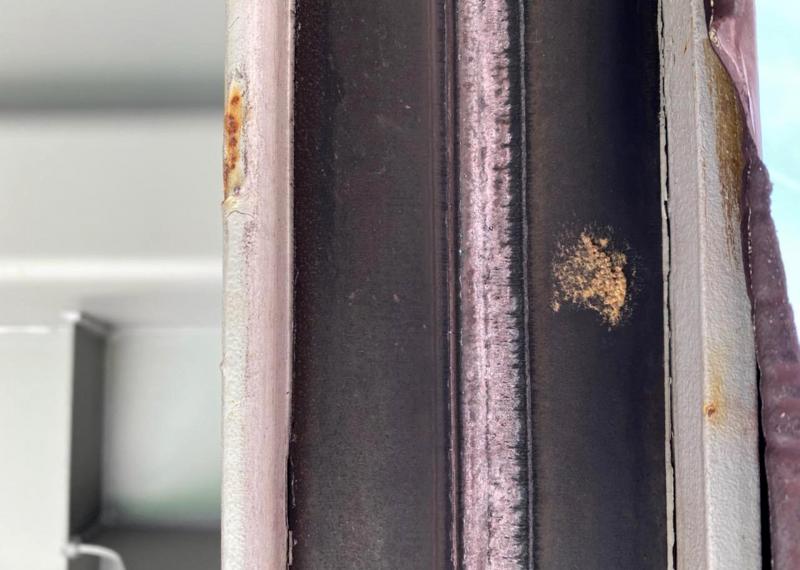BALTIMORE – The U.S. Department of Agriculture confirmed Wednesday that an egg mass that Customs and Border Protection agriculture specialists discovered on a coal freighter at the Port of Baltimore March 22 was likely of the highly destructive Asian Gypsy Moth (AGM) species.

Lymantria dispar asiatica/japonica,
also known as Asian Gypsy Moth.
CBP agriculture specialists inspected the M/V Mondial Sun and discovered the egg mass under a hatch door. The vessel, which arrived from the United Kingdom to take on coal, previously called on ports in China and Japan during the summer of 2019. Ports in Asia are high-risk ports for AGM. The M/V Mondial Sun departed Baltimore on March 24 destined to Japan.
CBP agriculture specialists removed the egg mass and treated the affected area with a pest spray oil. CBP submitted the specimen to the local United States Department of Agriculture pest identifier, who reported the egg mass as Lymantria dispar asiatica/japonica, the highly destructive Japanese gypsy moth.
Asian Gypsy Moth (AGM) is one of the most destructive insect pests in the world. They are not known to occur in the United States.
According to the USDA, AGM poses a significant threat to our nation’s forests and urban landscapes as it is known to be extremely mobile – females can travel up to 25 miles per day – is attracted to lights, can lay egg masses that could yield hundreds of hungry caterpillars, and is itself a voracious eater that attacks more than 500 species of trees and plants. If they would become established here, they could cause serious, widespread damage to our country’s landscape and natural resources.
“While most of the country remains hunkered down against coronavirus, Customs and Border Protection agriculture specialists remain on duty protecting our nation’s vital agricultural resources against Asian Gypsy Moth and other highly destructive insect pest invaders,” said Adam Rottman, CBP’s Area Port Director for the Area Port of Baltimore.
CBP agriculture specialists and USDA Animal and Plant Health Inspection Service (APHIS) inspectors have conducted AGM inspection training with AGM high risk countries (Far East Russia, South Korea, Japan, and Northeast China) to help lower AGM risks.

inspects a coal ship in Baltimore.
Additionally, vessels making port calls in Asia generally implement stringent inspections to detect and remove egg masses, and foreign governments in the AGM high risk countries during the AGM high risk periods inspect and certify that vessels departing their ports are free of AGM or egg masses.
CBP agriculture specialists perform a critical border security role in safeguarding America’s agricultural and natural resources from harmful pests and plant diseases. They have extensive training and experience in the biological sciences and agricultural inspection, inspect tens of thousands of international air passengers, and air and sea cargoes nationally being imported to the United States.
During a typical day last year, CBP agriculture specialists across the nation seized 4,695 prohibited plant, meat, animal byproduct, and soil, and intercepted 314 insect pests at U.S. ports of entry. See what else CBP achieved on a typical day during 2019.
CBP's border security mission is led at ports of entry by CBP officers from the Office of Field Operations. CBP officers screen international travelers and cargo and search for illicit narcotics, unreported currency, weapons, counterfeit consumer goods, prohibited agriculture, and other illicit products that could potentially harm the American public, U.S. businesses, and our nation’s safety and economic vitality. Please visit CBP Ports of Entry to learn more about how CBP’s Office of Field Operations secures our nation’s borders. Learn more about CBP at www.CBP.gov.
Follow the Director of CBP’s Baltimore Field Office on Twitter at @DFOBaltimore and on Instagram at @dfobaltimore for breaking news, current events, human interest stories and photos.

